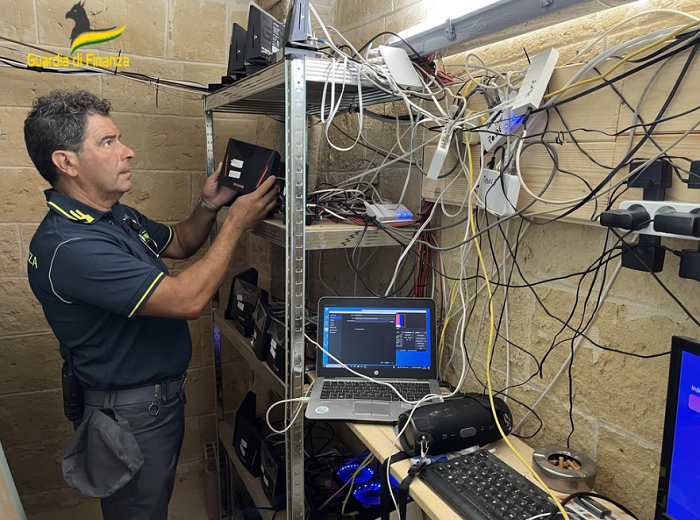 The Italian government, lawmakers, telecoms regulator AGCOM, broadcasters, and football leagues invested considerable resources to get new law over the finishing line in July.
The Italian government, lawmakers, telecoms regulator AGCOM, broadcasters, and football leagues invested considerable resources to get new law over the finishing line in July.
While one aspect of the law focuses on blocking access to pirate services, another ramps up punishments for those caught supplying illegal streams and customers who buy subscriptions to watch them.
Financial Police Raid Pirate IPTV Provider
In what may be the first major action following the introduction of the new law, Italy’s Guardia di Finanza (GdF) says it has shut down an IPTV provider in the southern Italian town of Canosa di Puglia.
“The financiers of the Barletta Group, as part of an initiative dedicated to combating television piracy, following extensive investigative activity, discovered an illegal transmission center for the channels of the SKY platform,” GdF (Financial Police) reports.
After being named in connection with similar operations in 2022, investigators of the Fiamme Gialle are also credited here for the discovery of a server room in Canosa.
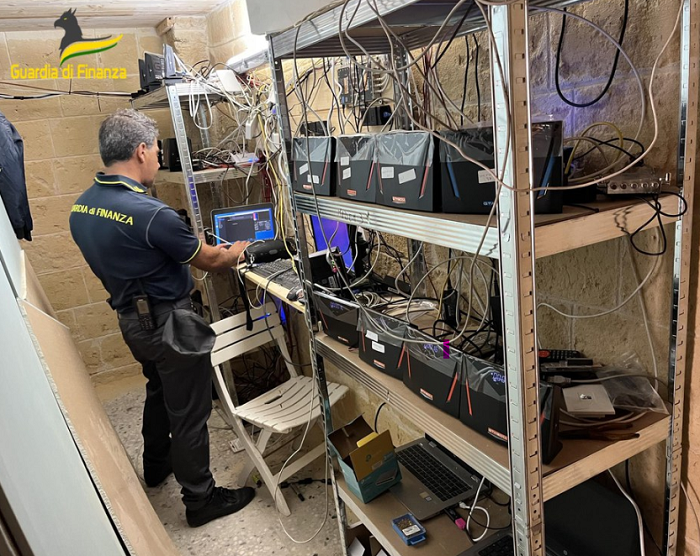
Equipment Seized
According to GdF, the Barletta Provincial Command investigators’ work led to a raid and the discovery of five high-powered computers, 33 decoders used to acquire the original broadcasts, plus 12 video encoders used at the rebroadcasting stage.
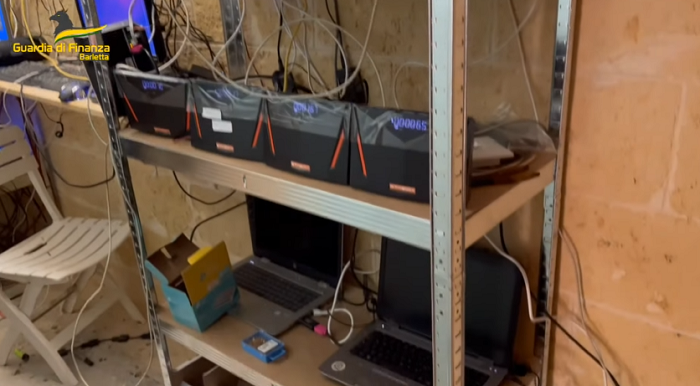
Aside from computers, a maze of cables, and nine power adaptors perilously plugged into a single mains power extension, one of the images provided by GdF reveals a monitor displaying a purple interface. Once zoomed in, the image offers more detail on how the service operated.
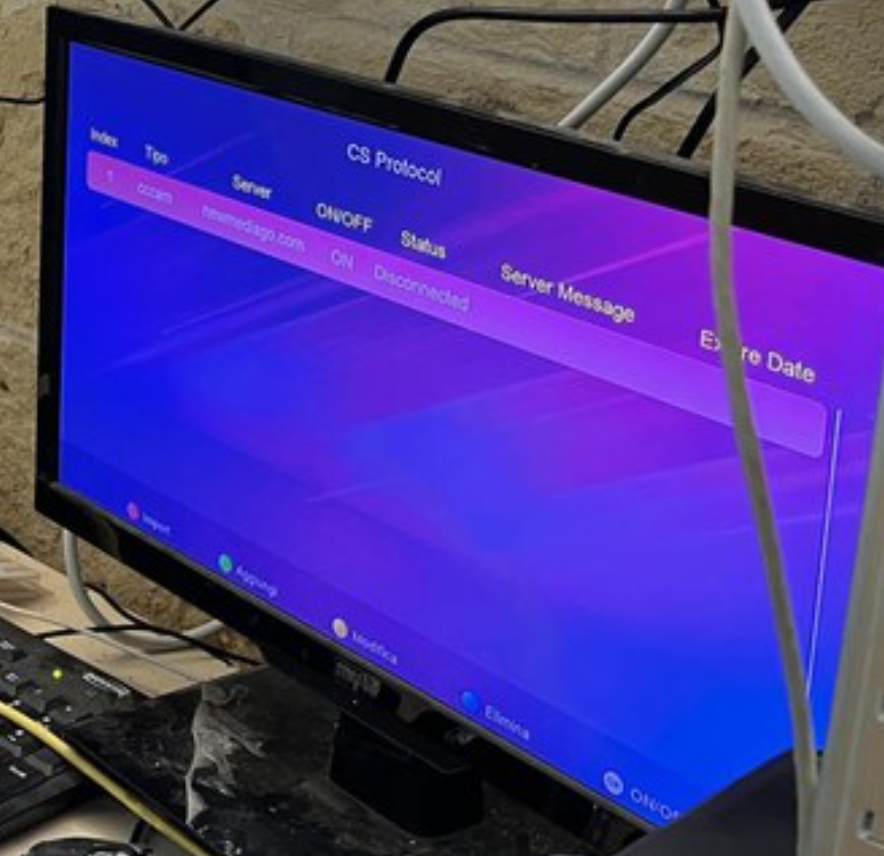
The text and interface in the image suggest that the sources of at least some original streams were satellite broadcasts decoded on-site using relatively cheap receivers configured for card-sharing (CCCAM).
The image below is not associated with the raid but shows the interface of a similar decoder when connected to a card-sharing server; the one in the police image has been disconnected.
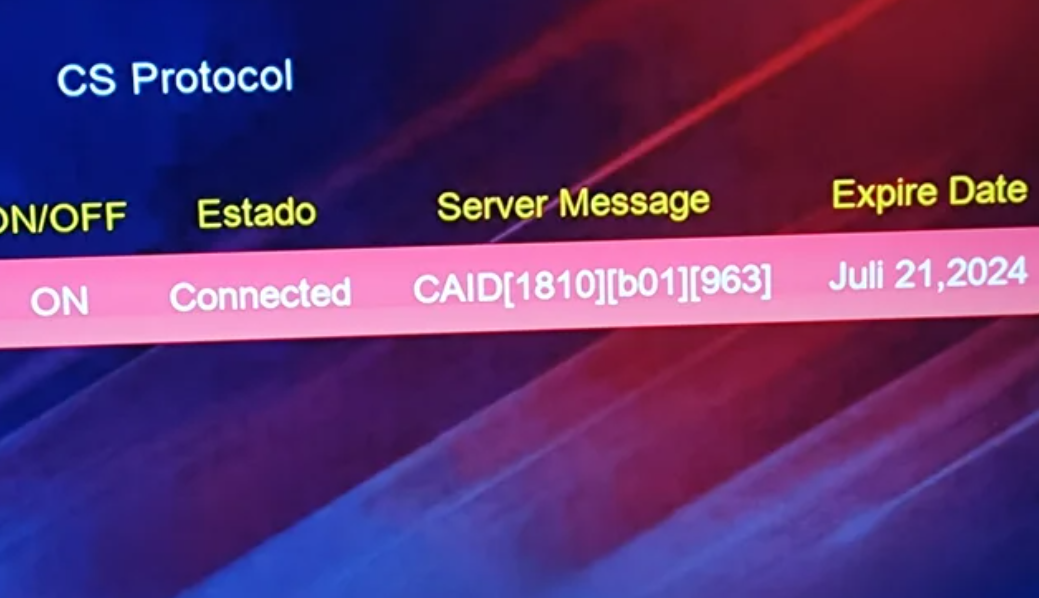
In the police image the name of the card-sharing provider is in view but too blurry for positive identification at the resolution available.
The decoders, on the other hand, appear to be GT Media V8 devices, most of which have the protective film still in place. They’re inexpensive and widely available.
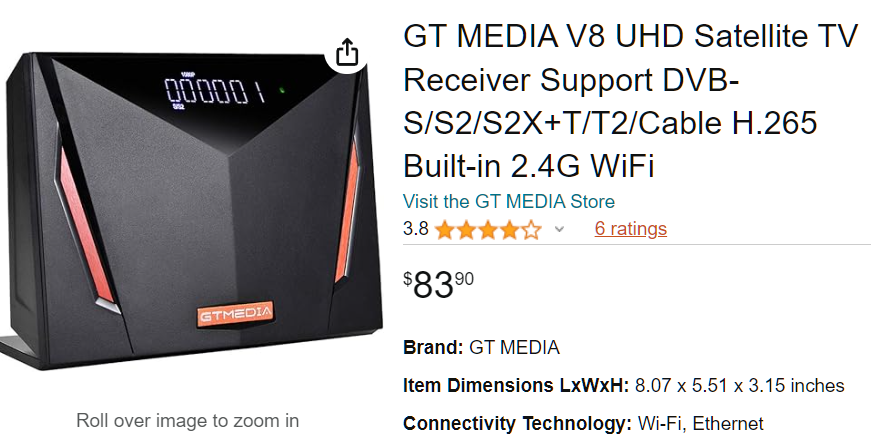
Equipment Was Fully Operational
Whether the suspect was taken by surprise or busy elsewhere isn’t made clear, but GdF says the equipment was fully operational when officers arrived.
“The equipment identified, functioning and operational at the time of the Financiers’ access, was used to illicitly transmit the pay TV contents to thousands of users, who are currently being identified,” GdF says.
The operator has been reported for copyright violations and if found guilty will face enhanced penalties under the new law. Police are suggesting that the provider’s customers may also face action; thanks to “seized materials it will be possible to identify the names of the end users and evaluate any proceedings against them,” GdF notes.
Italy has a lot of experience prosecuting suppliers but much less on the consumer side. For members of the casually-pirating public reliant on the media for information and guidance, legal detail and nuance tend to be lacking. As a result, the next few months could present a very steep learning curve for the less tech-savvy.
For those who signed up to the service with their real name, accurate contact details, and/or easily traceable payment methods, regret is likely to follow if the authorities take action.
From: TF, for the latest news on copyright battles, piracy and more.
0 Commentaires